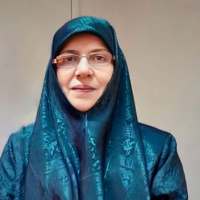Comparing the Consolations of Ibn Sina and Kantin the Face of Financial Poverty
Throughout history, philosophy has always been accused of being abstract and unrelated to the everyday issues of human life, so some later philosophers have offered solutions to some individual problems and social problems. Some of them are called “philosophical consolations.” Of course, “consolation” in custom means to calm a sad or afflicted person, but the meaning of the term consolation in philosophy and social sciences is somewhat broader than its customary meaning, and it means to calm the person through the way he looks at problems and provide a solution to the problems. Although philosophical counseling is a contemporary movement in the field of practical philosophy, b this does not mean that previous philosophers were silent about it; rather, some of them, in the form of practical wisdom discussions, have developed specific epistemological points and practical approaches to address the shortcomings of everyday life, including “financial poverty.”But among Muslim philosophers, Ibn Sina (Avicenna) is more famous than others. While getting acquainted with Aristotle’s practical wisdom, Farabi’s additions to it and some of the opinions of the scholars of Ikhwan al-Safa, he used a new innovative style in the discussions of practical wisdom and, therefore, in the Islamic tradition, he has influenced all his later philosophers. On the other hand, in the West, Immanuel Kant attached considerable importance to practical philosophy over theoretical philosophy. To this end, Kant also paid special attention to the philosophy of ethics, and his teachings overshadowed the ideas of most late Western thinkers.Because “financial poverty” has long been considered the mother of many physical and mental problems in human societies, the present research tries to explain and compare the recommendations of Ibn Sina and Kant in the face of the mentioned problem through a descriptive-analytical method. In Ibn Sina’s words, in addition to Aristotelian teachings, there are also Enlightenment approaches influenced by religious texts, but Kant, as one of the system-building thinkers in the Enlightenment, lacks Enlightenment views and rationally focuses on customary affairs to provide a solution. Ibn Sina conducts his discussion on the basis of rational and metaphysical concepts but most of Kant’s views are based on his empirical approach to human cognition, although he finds the science of “anthropology” very slippery, at least in terms of method, and finds its results uncertain.Ibn Sina examines the ill effects of financial poverty in order to comfort the poor. Ibn Sina has considered “deprivation of sensory pleasures” as an important necessity of financial poverty and considers the way to cope with poverty to depend on the passage of sensory affairs and knowledge of extra-sensory pleasures. Trans-sensory pleasure includes sensual pleasure (illusory or imaginary) and intellectual pleasure, which can be achieved even without material wealth, and the perception of intellectual pleasures may erase the bitterness of poverty and its effects for human beings. But while acknowledging the many problems of financial poverty, Kant knows that there is no cure for it other than wealth, so he places great emphasis on the element of work and effort. Since he considers poverty to be the greatest cause of carnal vices, he calls the acquisition of wealth through work, since it leads to happiness, man’s duty to himself.Ibn Sina’s idea is in fact one of the methods of tolerating poverty and tolerating it, and with Ibn Sina’s solution, the maximum psychological effects of poverty are removed. But Kant does not accept the conditions for tolerating poverty for human beings. Basically, in Kant’s view, money solves most, if not all worldly problems because man can benefit from the art and expertise of others through financial means.
- حق عضویت دریافتی صرف حمایت از نشریات عضو و نگهداری، تکمیل و توسعه مگیران میشود.
- پرداخت حق اشتراک و دانلود مقالات اجازه بازنشر آن در سایر رسانههای چاپی و دیجیتال را به کاربر نمیدهد.



